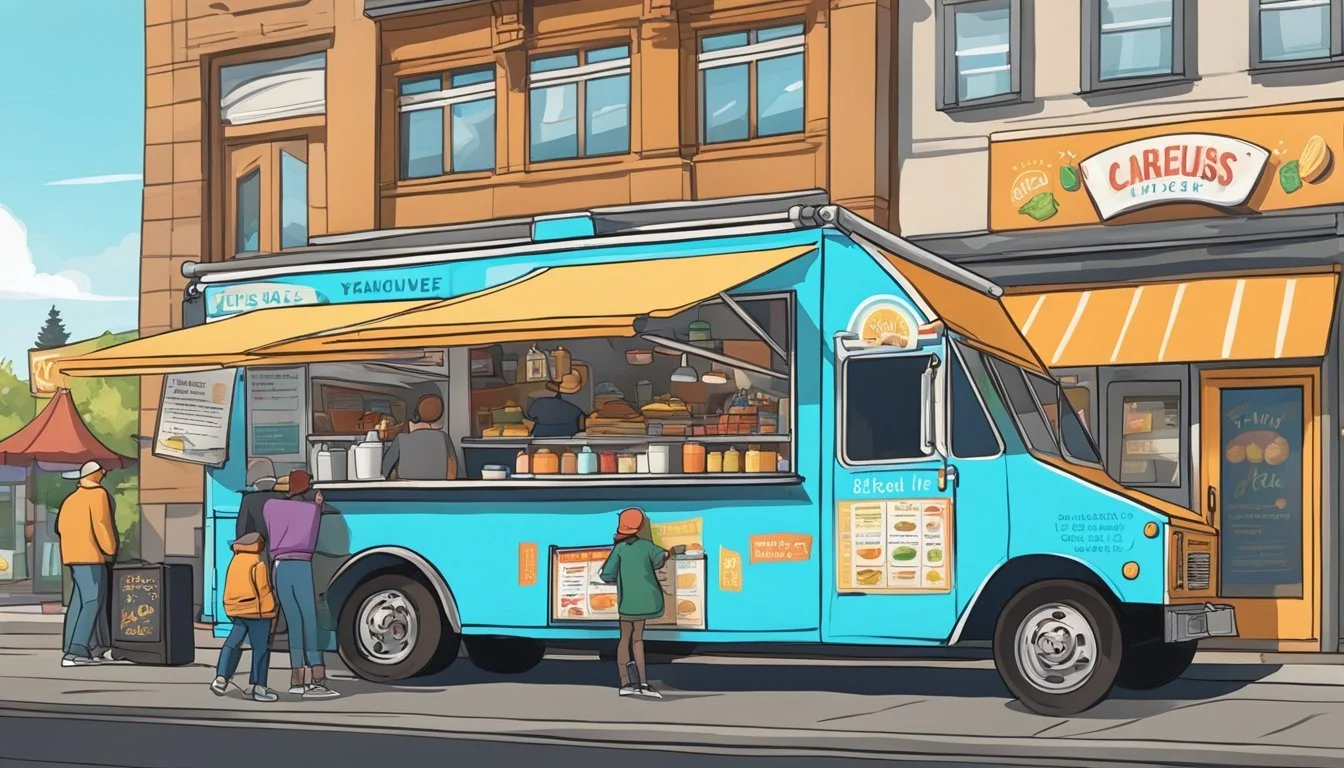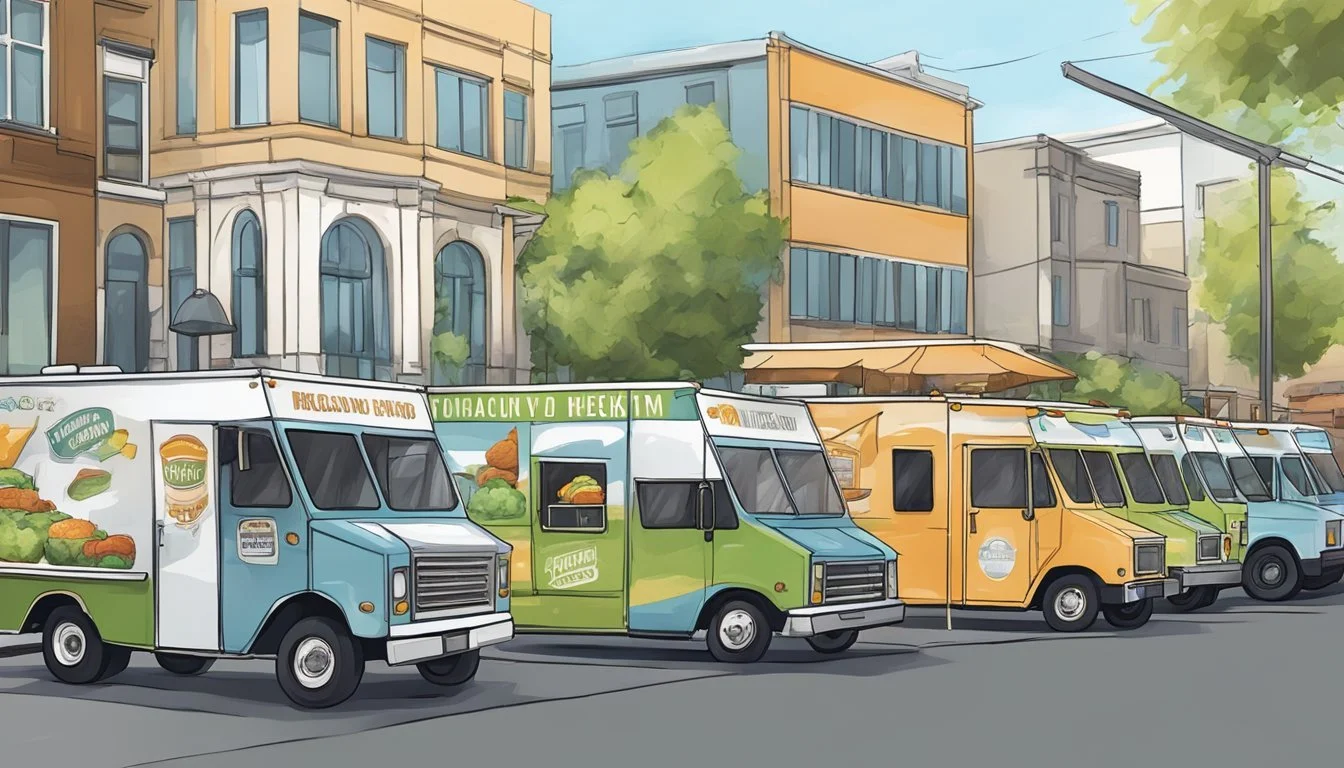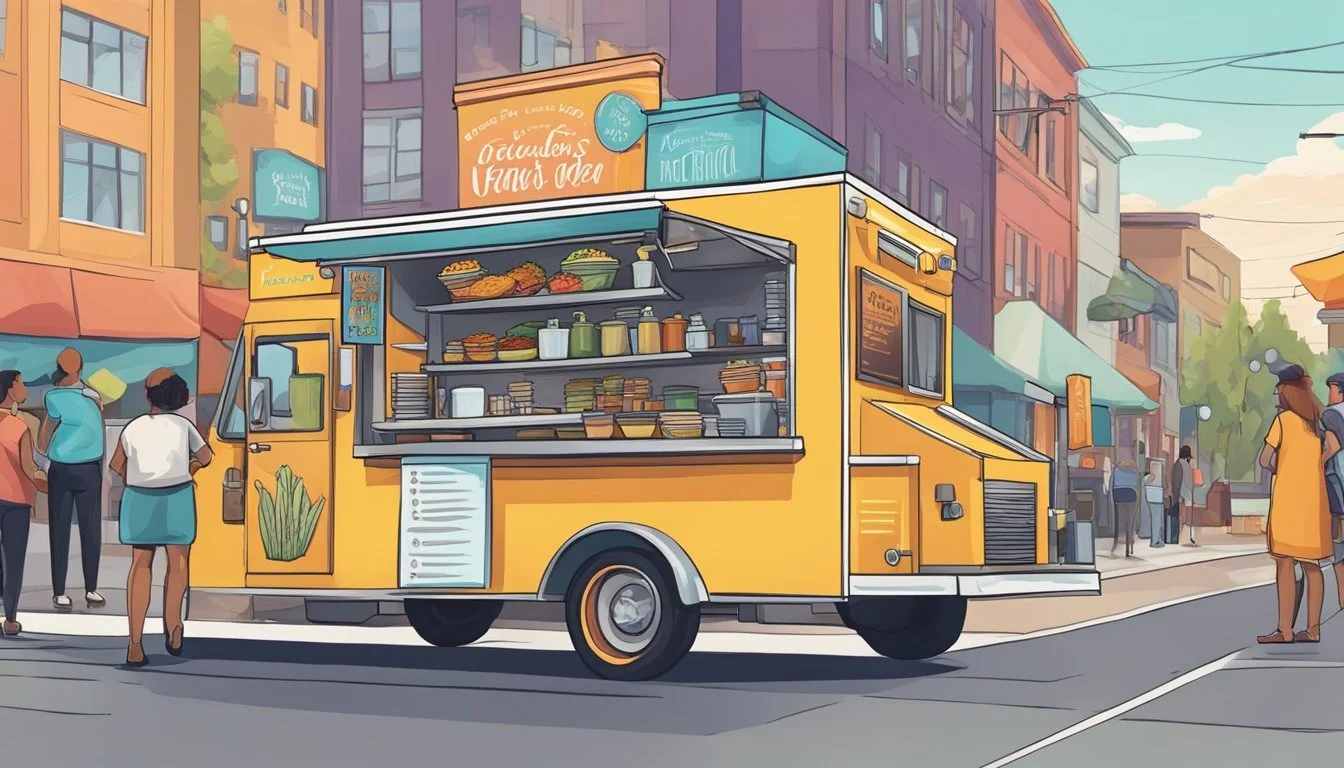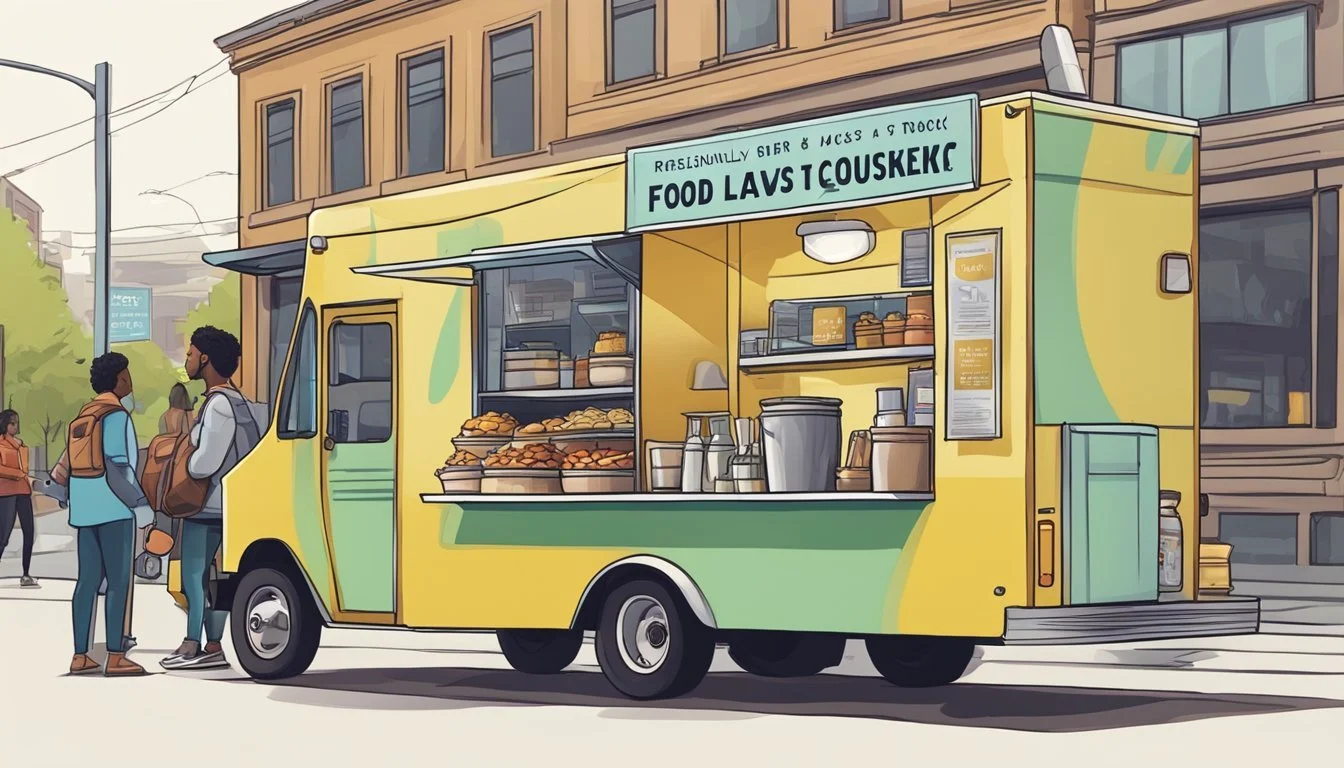Food Truck Laws Vancouver, Washington
Essential Regulations for Vendors
Operating a food truck in Vancouver, Washington, requires navigating a series of regulations and compliance standards. These laws ensure food safety, proper business conduct, and fair competition while balancing the interests of brick-and-mortar restaurants and mobile food vendors. A food truck operator must take into account local health codes, business licensing, and specific provisions that govern the use of public spaces.
The regulatory framework for food trucks in Vancouver is designed to address several key areas, including food preparation, vehicle safety, and zoning restrictions. Prospective mobile food vendors have to undergo health department inspections and secure various permits before hitting the streets. Understanding these requirements is critical for anyone looking to launch a food truck business in the city.
One must also stay informed about changes to these regulations, as local laws can evolve to reflect new public health directives or community needs. For food truck owners, success comes from not only offering a compelling menu but also ensuring full compliance with the Washington State Food Truck Rules. Compliance fosters a safe dining experience for customers and a thriving food truck scene that enhances the culinary tapestry of Vancouver.
Overview of Food Truck Regulations in Vancouver, WA
In Vancouver, WA, food truck operators must navigate a series of regulations set by various entities including state and local governments. These rules are designed to ensure public safety and fair business practices.
Legislation and Regulatory Bodies
The regulatory framework for food trucks in Vancouver, WA is based on state laws and local ordinances. Washington State stipulates basic food safety requirements and business licensing, while local governments such as the City of Vancouver have their own additional layers of regulation. For instance, Mobile Food Unit Information in Clark County details specific local requirements. The health department plays a crucial role in overseeing compliance with health and safety standards to prevent foodborne illness.
Understanding Food Truck Permits
To operate a food truck in Vancouver, vendors are required to obtain various permits and licenses. A city business license and possibly a state business license are basic requirements. Additionally, a county health permit is mandatory and could include a temporary health permit for special events. Details about acquiring these can be found in sources like the City of Vancouver's mobile food vending page, which can help businesses understand the necessary steps for legal operation.
Health and Safety Standards
Health and safety are paramount in the food industry. Food trucks must comply with the Washington State Food Code and secure a health permit following a plan review. This often involves an inspection to safeguard against the risks associated with food preparation and handling. Employees may be required to have a food handler certificate after passing an exam that verifies their knowledge of food safety practices. The Labor & Industries guidelines for food trucks cover the equipment and safety standards necessary for compliance.
Starting a Food Truck Business
In Vancouver, Washington, launching a food truck business requires careful planning, from establishing the structure of your company to navigating government regulations for permits and licenses.
Initial Business Setup
The first step for an entrepreneur is to determine the appropriate business structure. Most food truck owners opt for an LLC (Limited Liability Company) to protect personal assets and benefit from more flexible tax options. However, one may also consider forming a partnership if planning to co-own the business. Obtaining an Employer Identification Number (EIN) from the IRS is essential for tax purposes, hiring employees, and opening a business bank account.
Acquiring Vital Licenses and Permits
Food trucks in Vancouver need various licenses and permits to operate legally. A key requirement is obtaining a health department permit, which ensures the food truck meets safety standards. The local government mandates additional licenses, often starting with a basic business license and may be followed by a special event permit if participating in festivals or community events. Payment of all applicable fees is necessary when submitting permit applications. It's important for food truck operators to stay compliant with all licensing rules to avoid penalties and to ensure their business runs smoothly.
Operational Guidelines for Food Trucks
In Vancouver, Washington, food trucks, also known as mobile food units, must adhere to specific operational guidelines to maintain compliance with local regulations. These guidelines ensure the safety and standardization of food service operations provided by trucks, trailers, and push carts on both public and private properties.
Site and Location Considerations
Food trucks operating in Vancouver need to be strategic about their vending locations to comply with the city's zoning requirements. On public property, such as parks or the public right-of-way, operators must obtain the necessary permits and adhere to local laws which may limit where they can park and for how long. Certain areas allow food trucks to park at metered parallel parking stalls without payment, provided the permit is displayed correctly, and only in designated parking zones.
When choosing a location on private property, operators should negotiate terms that include access to facilities, like a restroom, which is required if they plan to be stationed at a location for longer than an hour. It is essential to be mindful of proximity to brick-and-mortar establishments to avoid conflicts that might arise. Additionally, consider the availability of space for a food delivery truck which is vital for restocking supplies.
Compliance with Food Truck Equipment Standards
The equipment onboard food trucks is subject to thorough inspections to ensure that operators meet the health and safety standards set forth by Washington State. The cooking equipment must be commercial grade and installed correctly to avoid hazards. Furthermore, a reliable fire suppression system is mandatory for handling any potential fire emergencies.
Legislation also mandates proper plumbing and electrical systems, including adequate water or drain systems to maintain sanitary operations. Inspections will review the operation and cleanliness of the vehicle, the proper functioning of equipment, and the food handling procedures. Food trucks are required to undergo an annual inspection by the Washington State Department of Agriculture to check for compliance in these areas.
By adhering to these operational guidelines, food trucks in Vancouver can ensure a safe, lawful, and thriving business environment.
Mobile Food Unit Specifics
Mobile food units operating in Vancouver, Washington must adhere to specific requirements set by governmental departments to ensure safety, hygiene, and compliance. The imperative steps include plan reviews and thorough inspections along with consistent vehicle and operational maintenance.
Plan Review and Inspections
Before a food truck or trailer can serve the public, it must undergo a plan review process with the Department of Labor & Industries. The review ensures that the design meets regulations applicable to commercial coaches or modular buildings. Cooking equipment and gas systems, including gas piping, are scrutinized for safety, and the installation must carry the appropriate L&I insignia as proof of approval.
Following the plan approval, inspections are mandatory to verify adherence to the reviewed plans. The Department examines various aspects like menu offerings to ensure they match the approved service style and cooking methods. The required frequency of these inspections can vary based on the equipment used and the potential hazards involved.
Vehicle and Operational Maintenance
Maintaining a food truck goes beyond mechanical upkeep; it involves sustaining sanitary conditions and securing food safety. Regular maintenance checks on the vehicle itself, as well as all cooking and service equipment, are vital. This includes checking fuel systems for leaks or damages to prevent any fire hazards.
Operational aspects also call for attention to detail. A schedule must be established for cleaning and servicing, and a commissary kitchen might be required for food preparation. Additionally, provisions for restroom facilities need to be arranged according to the local health regulations, often involving a formal agreement with a brick-and-mortar establishment.
Together, these procedures ensure that mobile food units in Vancouver operate within a structured and safe framework, keeping public well-being at the forefront.
Additional Requirements and Best Practices
Operating a food truck in Vancouver, Washington requires compliance with specific regulations and adherence to industry best practices. Besides obtaining the necessary permits and passing health inspections, food truck operators should also focus on securing appropriate insurance and engaging in effective promotion to ensure business success.
Insurance and Legal Considerations
Insurance is a critical element for food trucks, as it provides a safety net against potential liabilities. Owners should secure a comprehensive policy that includes general liability, vehicle insurance, and property insurance. Additionally, if employees are hired, worker's compensation insurance is a requirement.
General Liability Insurance: Protects against injuries or damages to customers.
Vehicle Insurance: Covers damages from accidents involving the food truck.
Property Insurance: Guards against theft or damage of the truck and equipment.
Worker's Compensation: Mandatory if the food truck has employees; covers job-related injuries.
Operators must adhere to safety standards such as those for handling propane and other flammables. Compliance with these regulations is overseen by regulatory bodies like the Washington State Department of Labor & Industries and local health departments.
Promoting Your Food Truck
A successful marketing strategy is essential to attract and retain customers in a competitive market. Food truck owners should leverage social media platforms and local food truck association networks to promote their business. Participating in community events can also increase visibility.
Social Media: Use platforms like Instagram and Twitter to share location updates, special offers, and menu items.
Networking: Join the Washington State Food Truck Association for support and to stay informed about industry trends.
Community Engagement: Attend local events to engage directly with the community, increasing brand recognition and customer loyalty.
Through diligent adherence to these additional requirements and best practices, food truck entrepreneurs can create a sustainable operation that complies with legal expectations while flourishing in the mobile food vending scene in Vancouver, Washington.
Resources and Support for Food Truck Operators
Operating a food truck in Vancouver, Washington, can be complex due to various regulations and requirements. To navigate these successfully, operators should consider the benefits of joining supportive organizations, staying updated with guidance, and understanding event-specific regulations.
Membership and Organizations for Support
Organizations such as the Washington State Food Truck Association are critical for guidance and support. They offer membership options that provide access to member services, including advocacy and consultation on local regulations. Cities like Vancouver and Ridgefield benefit from such an organization's lobbying efforts, which can lead to more favorable conditions for food trucks operating within their jurisdictions.
Annual membership dues are an investment in a food truck operator's business, opening doors to networking opportunities with other caterers and vendors, as well as assistance navigating the legal complexities of food truck operation. Member services typically encompass guidance for new entrepreneurs, helping them to avoid costly mistakes and ensuring they comply with pertinent laws and regulations.
Further Guidance and Frequent Updates
Staying current with regulatory updates is essential for food truck operators. The member services organization often provides this through newsletters or direct consultations, sometimes for additional consulting fees. These resources ensure that food trucks in public spaces like parks or markets adhere to the most recent health and safety standards.
City-specific regulations, such as those implemented by the City of Vancouver, can be complex, so up-to-date guidance is invaluable. It reduces the risk of non-compliance and helps operators adjust to changes that may affect their day-to-day activities. Assistance with obtaining the correct permits and understanding zoning laws is also a key service.
Event-Specific Requirements
Participation in special events requires an understanding of unique requirements in addition to general city guidelines. Event organizers may have specific needs concerning operations within public or private spaces. Organizations can assist with understanding these nuances, and may even offer platforms for booking such events.
Regulations might differ for food carts compared to larger food trucks, especially during festivals or markets. Being part of an association provides a buffer, offering advice on the specific permits needed for different event types and locations. Additionally, organizations can help caterers navigate the policies around operating in parks and other public spaces for both private and public events.
Advanced Considerations for Food Truck Operations
When operating a food truck in Vancouver, Washington, owners must stay abreast of emerging industry trends and participate in innovative initiatives. Understanding and engaging with pilot programs as well as keeping an eye on future research developments can significantly impact the success of mobile food ventures.
Innovative Concepts and Pilot Programs
In Vancouver, mobile vendors seek differentiation through unique culinary concepts and participation in city-endorsed pilot programs. The City of Vancouver encourages innovative mobile food vending, which includes a variety of food and beverage options presented in unique ways. For instance, a pilot program may focus on sustainability efforts, such as using eco-friendly packaging or sourcing ingredients locally, setting a new standard within the mobile food industry.
Future Trends and Research in the Mobile Food Industry
The mobile food industry is driven by continuous research which unveils new trends, guiding food truck operations towards success. There is an emphasis on data-driven decisions, with research indicating the popularity of cuisines or the effect of location on sales. Keeping attuned to these studies helps mobile vendors adapt and thrive within the dynamic landscape of Vancouver’s food truck scene.
Frequently Asked Questions
What permits are needed to operate a food truck in Vancouver, Washington?
Food truck operators are required to obtain a variety of permits to legally vend in Vancouver. They need a business license, a food establishment permit from Clark County Public Health, and must comply with local and state health and safety regulations.
Are there any specific requirements for food trucks in Vancouver?
Yes, all food trucks must adhere to local guidelines which include having a valid business license and a food establishment permit from the King County Health Department. It's also necessary to have a commissary kitchen, unless qualified for an exemption, and a fire suppression system is mandatory for all food trucks in Washington. The Washington State Food Truck Association offers detailed information on county-specific requirements.
Can food trucks in Vancouver serve alcohol?
No, according to regulations, food trucks in Washington are not allowed to serve alcohol.
Who do I contact for questions about mobile food unit labels?
For questions regarding labeling, the Washington Department of Labor & Industries provides support. They have a contact number and an email address for the plan review staff that can assist with these inquiries as detailed in Labor & Industries Guidelines.
What should food truck operators do if they plan to have employees working outside of the truck, such as with push carts?
These situations are not regulated by L&I; instead, operators should contact the state Department of Health and/or the local health department for applicable guidelines.
Conclusion
In Vancouver, Washington, food trucks represent an expanding segment of the culinary industry. They are subject to a defined set of regulations, which entrepreneurs must navigate to operate successfully. The City of Vancouver has established clear guidelines for mobile food vendors, which include various requirements from location permissions to health and safety standards.
A key regulation includes obtaining proper licensing, which is guided by specific zoning laws. This ensures food trucks are situated in authorized areas and maintain the city's planning objectives. Food trucks must also comply with the Clark County Health Department regulations to ensure public safety and sanitation.
Annual fees and inspections are a part of the procedural requisites. These assessments verify that the food trucks meet all necessary standards for operation, particularly in areas pertaining to food handling and fire safety. For example, the Washington State Department of Labor & Industries certifies that a food truck has passed all essential inspections prior to approval.
Should prospective mobile food vendors have inquiries or require assistance, the City of Vancouver provides resources and personnel, such as Kristian Corbin or Krystal Sanchez, available for contact and support.
These structured regulations serve a dual purpose: they protect the interests of both the consumers and the vendors. Compliance is crucial for the longevity and prosperity of food trucks in Vancouver, fostering an environment where culinary innovation thrives within the bounds of community standards.











